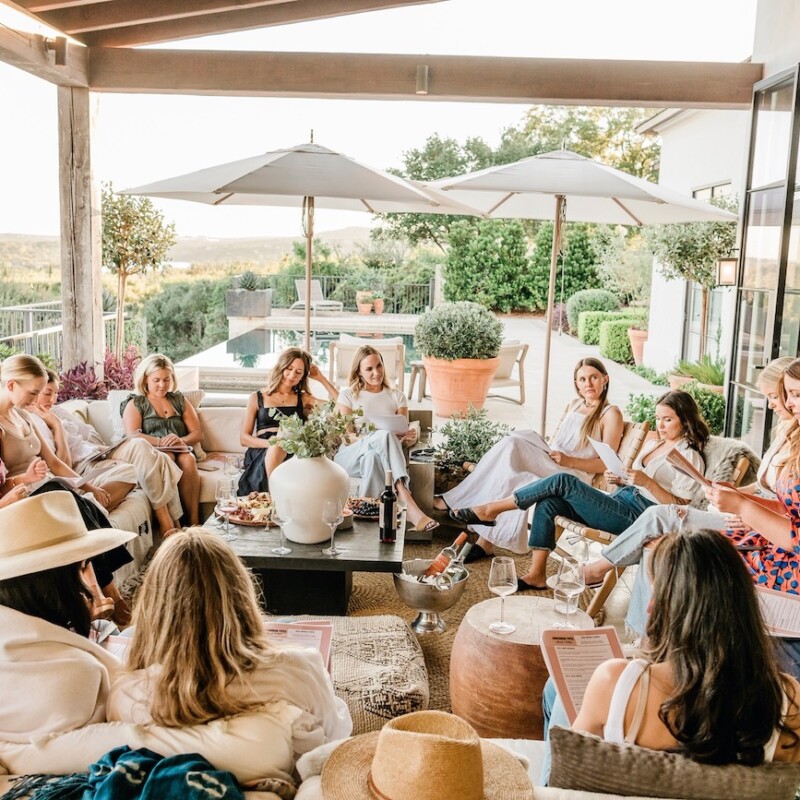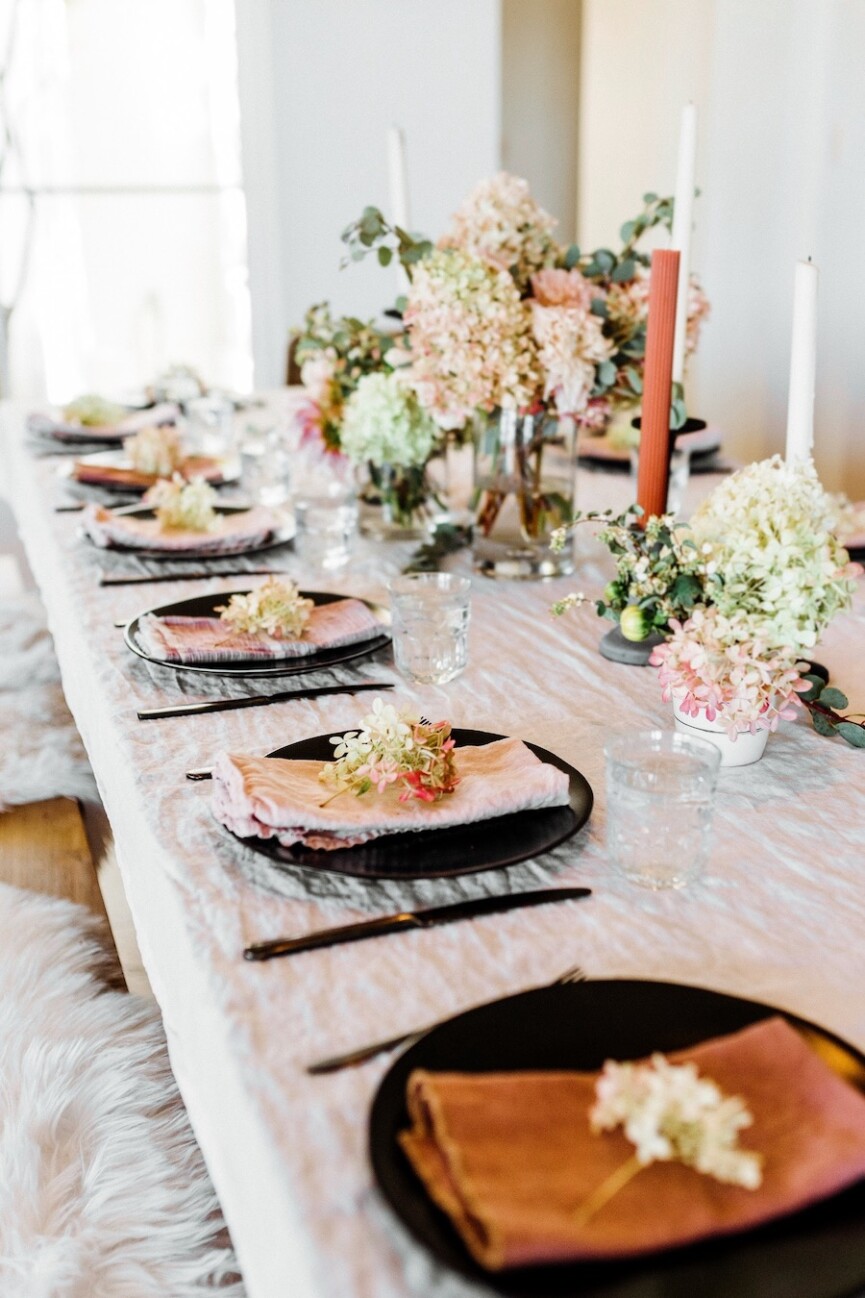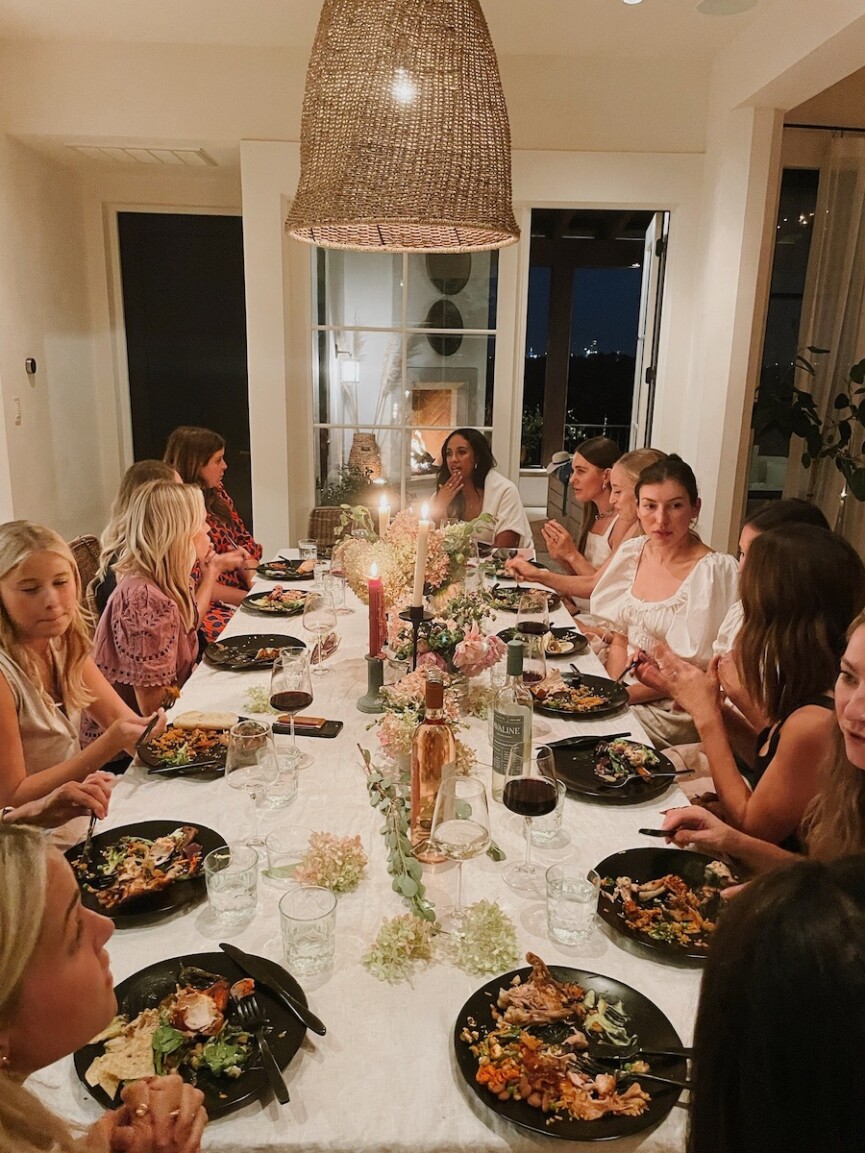A couple of weeks ago, the entire Camille Styles team gathered at my house in Austin for our first annual two-day editors summit. What made it really special was that it was the first time that all 16 of us had been together in-person, off Zoom. Our editors are scattered from Los Angeles to New York (and many places in between!) so I wanted to make the most of our time together. And I knew that getting to know each other more deeply would not only strengthen our friendships, it would also lay the foundation for an even stronger, more collaborative team.
In the weeks leading up to our summit, I threw myself into planning, from creating the menu for our welcome dinner to organizing travel details. But the biggest question weighing on my mind had nothing to do with the party details. As the pieces came together, I was focused on how to avoid small talk and create space for true connection in the 48 hours that we had together. I knew that even if everything else was flawless, fostering authentic conversation was the real key to a successful event.

In my years as an event planner, I got to be a fly on the wall of so many gatherings, from dinner parties to weddings to corporate events. I’ve always been fascinated by what makes some parties unforgettable and others duds, and usually the answer has nothing to do with floral arrangements, lavish displays of food, or anything else money can buy—it’s all about the people. I believe that a host’s number one job is to create an environment that puts people at ease and encourages meaningful conversation among guests. So, as we head into a holiday season when many of us will gather for the first time in awhile, it feels like the time to share my tried-and-true tips on how to avoid small talk and host in a way that makes your guests feel connected and uplifted. I’d love to hear in the comments if you have any tips or conversation starters that have worked for you.
1. Define your purpose
Priya Parker is a thought leader on the topic of gathering in ways that bring deeper joy and fulfillment, and I learned from her book that it’s important to begin by identifying—and communicating—the intention of why you’re gathering in the first place. For our editors summit, I set expectations for our team that this wouldn’t be about brainstorming, vision casting, or goal-setting. Our two days together were intended to make space for rest, fun, and team-building—I wanted us to celebrate all of our hard work together. And by no means does the purpose of a party need to be serious. As Parker told NPR,
“It can be a total rave, like, the intention might be to just leave everything behind,” says Parker. “It just allows people to know how to be, know how to show up, [and] know that they were specifically and wisely chosen. And then the group shapes the life of the evening itself.”
Once you’ve nailed down your purpose, you can then move on to logistics.


2. Be strategic with your guest list
Once again, the choice of who and how many people to invite should be rooted in the gathering’s purpose. Although it’s tempting to say “the more the merrier” and invite everyone, that may not serve your desire to create meaningful connections among your guests. For an intimate dinner table conversation, I love a group of six—it’s enough people for a lively conversation, but it’s not so big that the group immediately splits off into lots of side conversations.
Or, maybe you want to invite 25 people and have a full-on party—in this case, you’ll want to think about the dynamic among the guests your inviting. For example, if there will be people who show up not knowing anyone, you might invite a couple people who always go out of their way to get to know new people. And, as the host, you can create an atmosphere that encourages people to get to know each other. Perhaps you step in and spark conversation by helping people discover common ground. If someone is hanging back, you can intentionally bring them into the discussion.

3. Encourage vulnerability
Since our editors summit was only 48 hours, I had to get creative with ways to “fast track” connection and vulnerability. Enter: the enneagram. My friend Elle Worsham is an Enneagram Coach who specializes in helping groups understand their “types” to deepen their relationships and access their true potential. She joined us on day one for a workshop where we learned about the framework, and shared how our enneagram type was helping or hindering our personal growth. It was an incredible way to learn each others’ stories in a deeper way, and better understand the fears and motivations of our teammates. For the rest of our time together, conversations felt deeper and more vulnerable because we’d started by establishing this circle of trust.
Of course, an enneagram workshop is definitely not the right move for every gathering (lol.) But there are so many subtle ways to encourage a group to get vulnerable, moving quickly beyond the small talk. Sometimes, it may mean daring to ask the group a question that might at first seem a little intense. At one New Year’s Eve dinner that I attended, the host asked everyone to go around the table and share one thing they wanted to leave behind from the past year, and one thing they wanted to bring with them.
And other times, it’s as simple as “making the first move” in vulnerability by revealing something personal about yourself. Science says that when you disclose something vulnerable about yourself, others are likely to reciprocate.

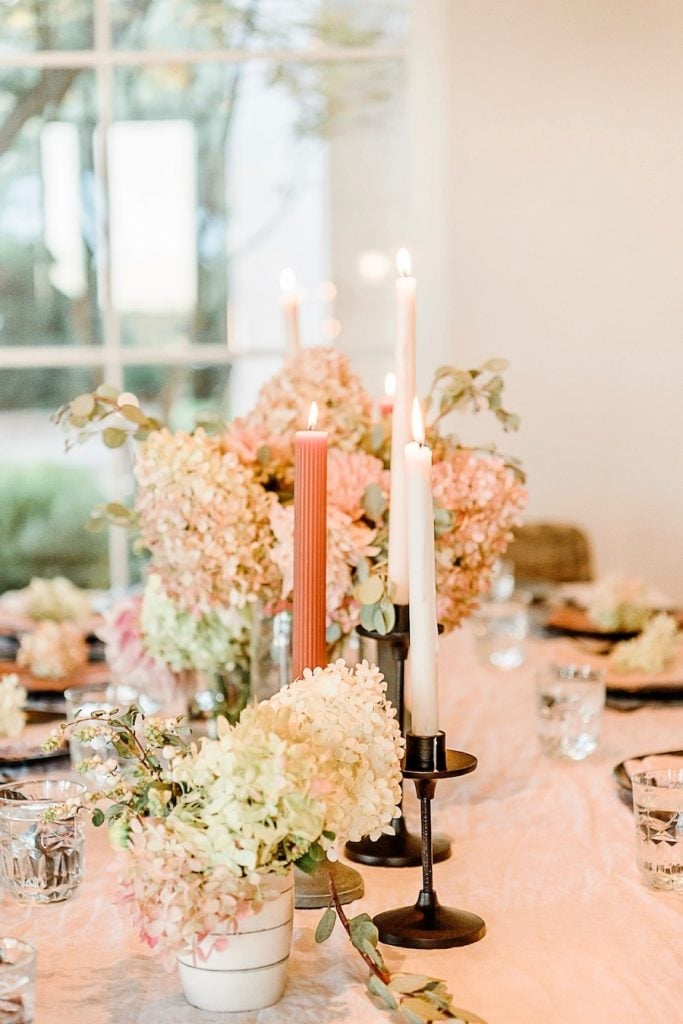
4. Come prepared with conversation starters
I often do five minutes of conversation “prep” before going into a social situation, and it goes a long way when I’m in the moment and trying to think of what to say. Peruse guests’ social media feeds to see what they’ve been up to and use that as a starting point for things you may want to talk about. Or, read up on some current issues in culture that go beneath the surface. Bring them to the conversation and invite others to share their own experiences or feelings on what’s happening in the world.

5. Be genuinely curious
After you’ve got your conversation starters, this is the next, even more crucial step. Once you bring up that person’s new pet or ask how they feel about this season of Ted Lasso, it’s time to listen. And I mean really listen, not just to the words they’re saying but also to body language and the meaning that’s behind their words. And then follow your curiosity! When you get curious about the other person, follow-up questions will rise to the surface and conversation will flow more naturally that you could ever image.
6. Invite others to share stories instead of facts
Asking for facts tends to lead to dead-end conversation. For example, asking “Did you find it here okay?” or even “How old are your kids?” can lead to a short answer that stagnates with you nodding your head wondering what to say next. Asking someone to share a story, however, instantly opens up the conversation to go deeper. Try something like “What was the highlight of your week?” Or “Tell me some things you’re enjoying about your kids right now,” reveals so much more about your conversation partner.
And the “norm of reciprocity” holds true here, too! If you come prepared with a couple stories about what you’ve been up to or something meaningful that’s happened to you lately, others are more likely to chime in with stories of their own.


7. Avoid asking “what do you do?”
I know, you genuinely just want to know what they do for work… and there’s nothing wrong with that! However, it’s honestly very difficult to ask this question without making the other person feel like they’re being sized up, which isn’t the best way to establish trust and vulnerability in the early stages of a conversation. Besides, only talking about people’s jobs is a surefire way to make a convo super boring! Instead, try asking people questions about who they are, such as “What do you love to do for fun?” or “What’s your favorite place you’ve ever traveled?”


8. Anything but the weather
We’ve all been guilty of it: a lull happens in the conversation, and you jump in with, “How about the beautiful weather this week?” or “Can you believe this rain?” However, in my experience you should avoid talking about the weather at all costs, because there’s no more surefire way to send a conversation straight into dullsville and you might never get back.
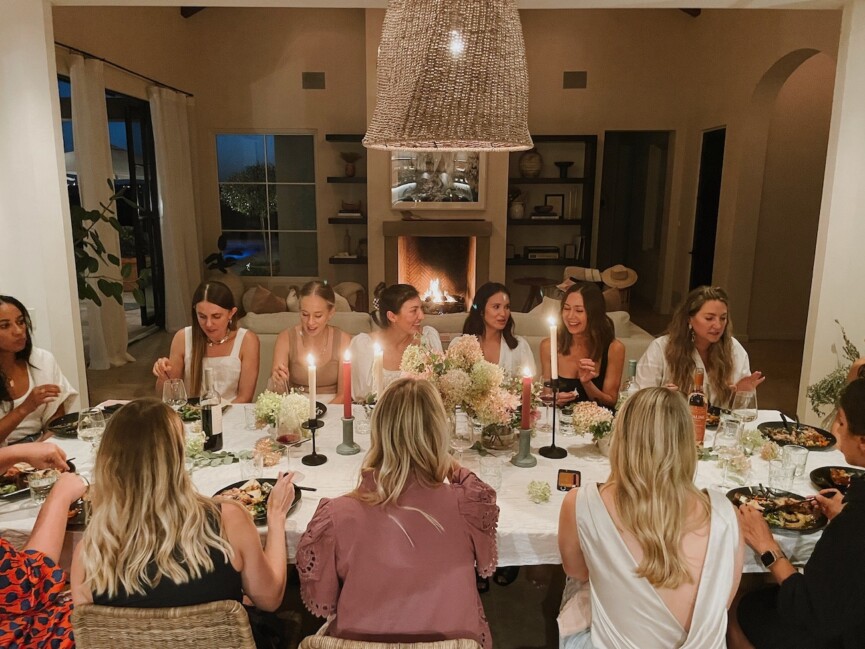
9. Be open to a different point of view
Avoiding small talk might lead you into territory that could spark disagreement—and contrary to popular opinion, this is totally okay! I know it can be scary for many of us, but when you approach a differing point of view with openness, it doesn’t have to be detrimental to a relationship, it can actually strengthen it when both parties feel heard and respected.
To be honest, I think that if a dinner party conversation totally avoids “sex, politics, and religion,” it might be missing out on some very fun topics of conversation. That said, if you’re gonna go there, make sure that you’re in a mental and emotional space where you can be open to hearing another’s differing point of view without getting heated. Remember: it’s not your job to convert anyone else to your belief system. Instead, try just listening!

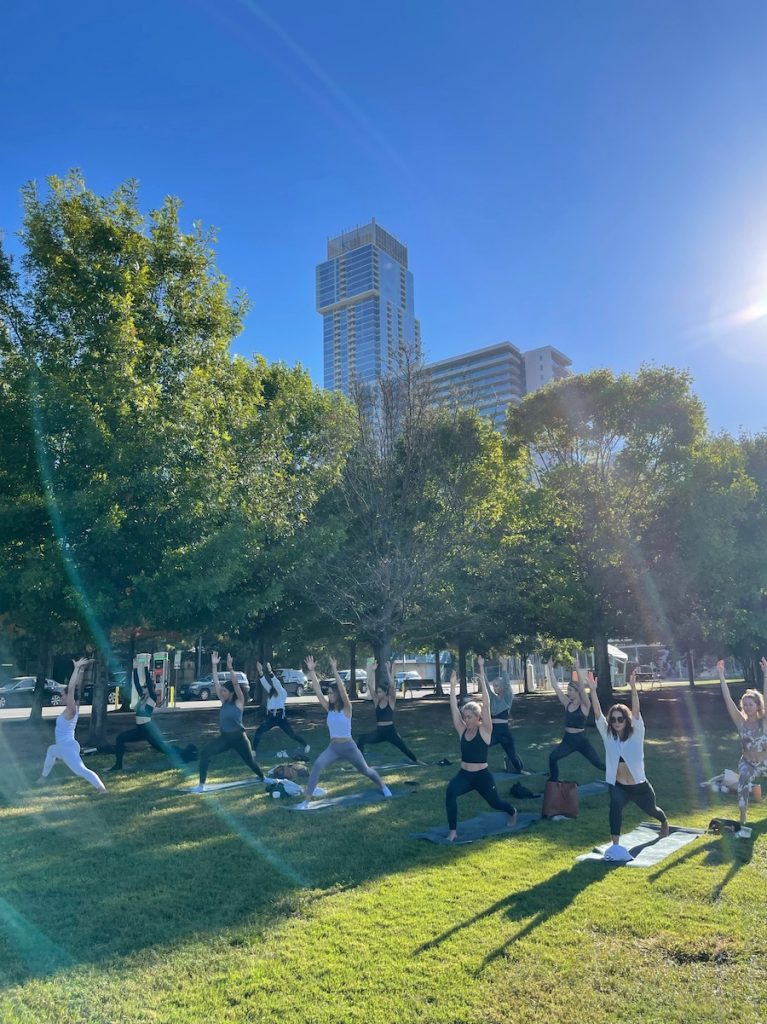
10. Most importantly, be present
Have you ever been having a conversation with someone new, and suddenly realize that you didn’t hear the last thing they said because you were too distracted analyzing that thing that you just said? When we get “in our heads” and start focusing on the impression that we’re making, the conversation quickly becomes disconnected. Distraction with our own thoughts tends to show up quickly in our nonverbal cues, and it’s subtly communicated to our conversation partner. Instead, try slowing your breath, and make an effort to really tune in and listen. When we’re fully in the present, truly listening to what the other person is saying and picking up on the meaning behind their words, the conversation will flow incredibly easy.
***
To be a great host, you don’t have to be a good cook or have the perfect house for entertaining. It’s really all about how you connect people. It takes thought and intention to find how to avoid small talk and foster real connection among your guests, but it’s so worth it. All 16 of us left our editors summit feeling more rested and emotionally filled up, more understood and connected, knowing we’d laid the foundation for deeper relationships. It’s a feeling like no other, and we’ve been able to carry that positive energy right out into the rest of our lives. To me, a gathering doesn’t get better than that.

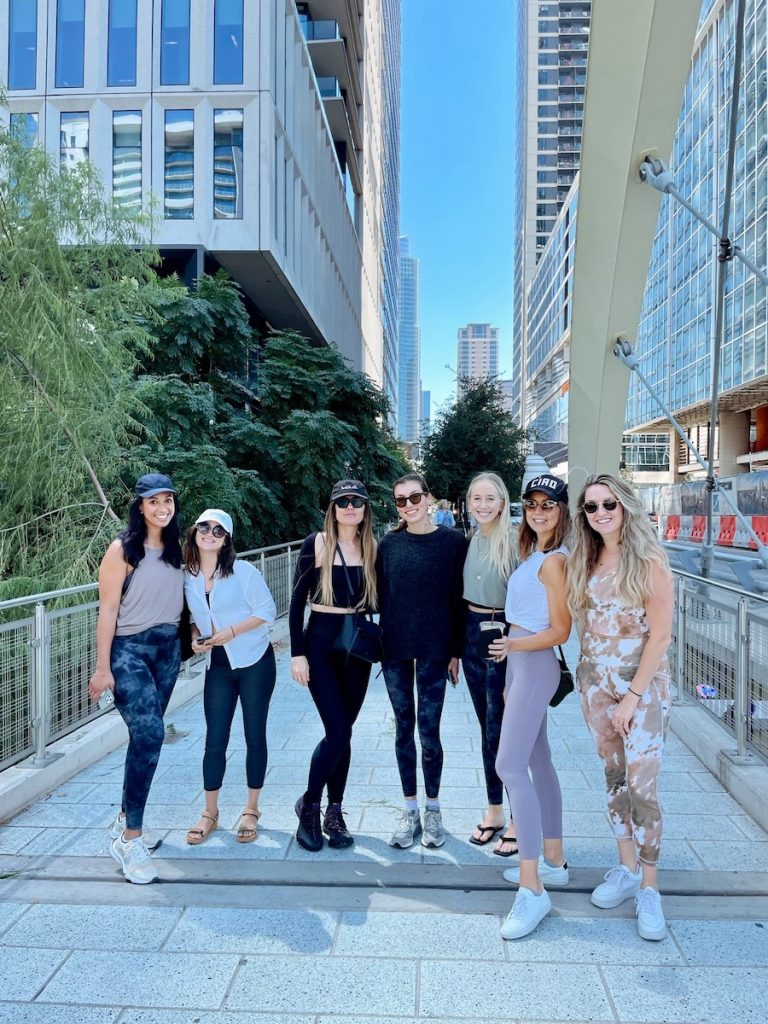
Do you have any tips for how to avoid small talk and create more connection at a gathering? Drop them in the comments below.


